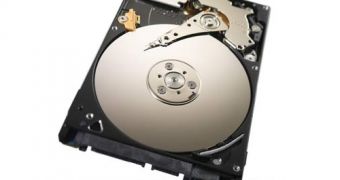Seagate may no longer be the greatest supplier of HDDs in the world, but it still develops and launches newer and more advanced technologies, like heat-assisted magnetic recording (HAMR).
HAMR has to be the greatest milestone Seagate has reached in recent years, since it might actually do away with all the rumors about how it is only a matter of time before SSDs completely replace HDDs.
The former may forever exhibit a higher data transfer speed than the latter (or they won't), but HDDs will definitely maintain their capacity advantage.
Microsoft even said, some time ago, that SSDs would hit a big bump in the road by the time they reach 16 TB.
Seagate's heat-assisted magnetic recording (HAMR), the newest recording technology, makes it possible to give HDDs up to 60 TB.
Sure, that will happen gradually over the next decade, and the first drives using HAMR will only appear in a few years.
Nevertheless, they will show a twofold increase in average storage space right off the bat.
“The growth of social media, search engines, cloud computing, rich media and other data-hungry applications continues to stoke demand for ever greater storage capacity,” said Mark Re, senior vice president of heads and media research and development at Seagate.
“Hard disk drive innovations like HAMR will be a key enabler of the development of even more data-intense applications in the future, extending the ways businesses and consumers worldwide use, manage and store digital content.”
HAMR essentially doubles (at least) the capacity of today's HDDs by cramming 1 Tb of data on a single square inch.
The linear bit density is of roughly 2 Mb per inch, something assumed impossible until not too long ago.
Initially, the maximum capacity of 3.5-inch drives will go from 3 TB (620 Gb per square inch) to 6TB, while 2.5-inch models will jump from 750 GB to 2 TB. Once the tech reaches its apex, 3.5-inch units will support 30 TB to 60 TB and 2.5-inch will allow for 10 TB to 20 TB.

 14 DAY TRIAL //
14 DAY TRIAL //